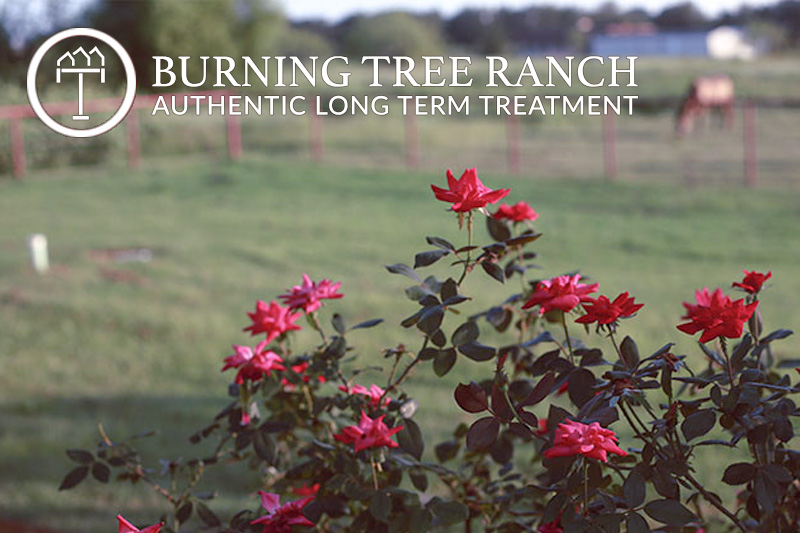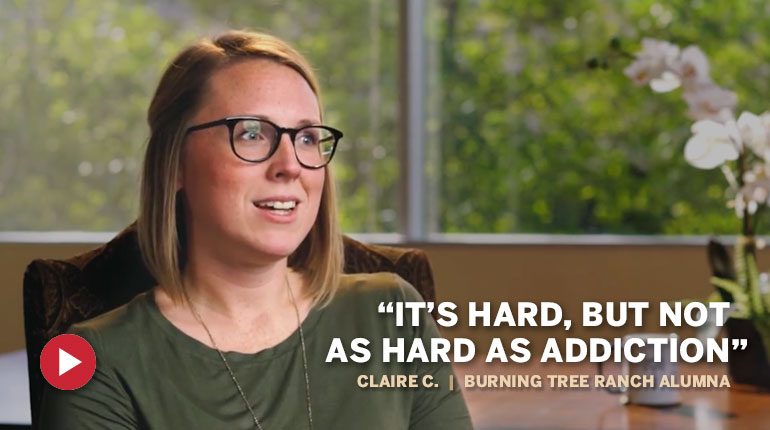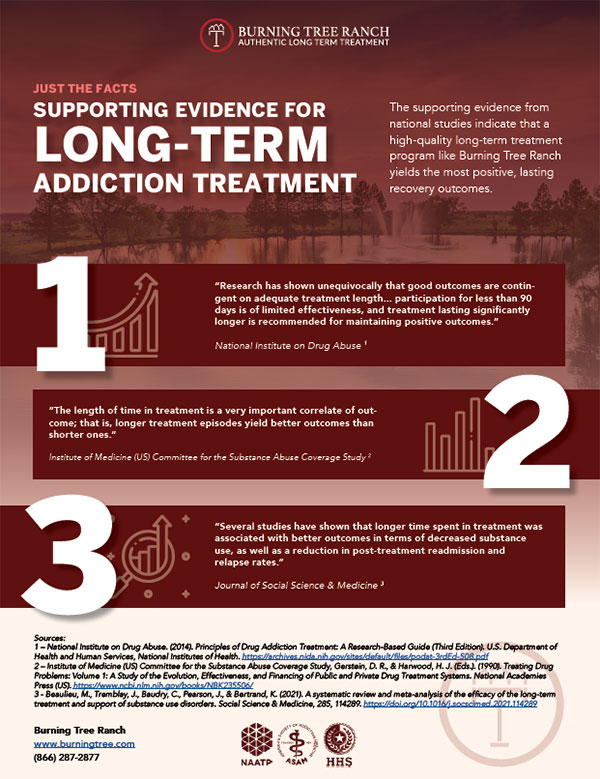This Entire Page Is For You
The Burning Tree Client
- Continues substance use despite increasingly grave consequences
- Struggles with undiagnosed, misdiagnosed, or untreated co-occurring disorders
- Fails to maintain therapeutic, medication, and self-care routines
- Faces difficulties in managing anxiety, depression, and stress
- Delays seeking help, minimizing the gravity of their addiction
The Chronic Relapser
- Resists accepting full responsibility for recovery
- Blames setbacks and shortcomings on external influences
- Exhibits compelling arguments when motivated
- Possesses a high capacity for persuasion
- Provides limited details when pressed for clarity
- Acts without considering the long-term consequences
- Accepts help conditionally, if at all
Burning Tree Families often describe these behaviors as perplexing and, at times, deeply frustrating. Yet, the overriding sentiment revolves around the pain they cause.
Who Is a Burning Tree Client?
The Good
One tell-tale sign of a chronic relapser is their high IQ. Along with it, an incredible talent for wit, quick thinking and humor. Having mastered the English language, they use their vocabulary to outmaneuver nearly any obstacle. However, as their addiction develops, intelligence becomes their greatest liability.
Instead of using their brilliant minds for good, they use it to disarm loved ones, treatment providers, and anyone who has set out to help them. They are masters at dishonesty, justification, and persuasion.
The stories they weave and the lengths they go to evade personal responsibility boggle the mind. One of their most baffling features is how they often leave you wondering if you are the crazy one.


The Bad
The chronic relapser acts as an emotional vampire. They create confusion over harmony while simultaneously sucking the life out of their loved ones.
In relationships, the chronic relapser uses the “I hate you, don’t leave” approach, which leaves loved ones feeling terrified, confused, and emotionally used up. Instead of enjoying life, loved ones find themselves “walking on eggshells” to avoid setting the chronic relapser off on a spree. In addition, their self-centeredness is at such an extreme that every little issue is taken personally.
This is evident with clients even in treatment with their counselor. If their counselor doesn’t show up for work because they woke up with a fever, the client will often take it personally and feel abandoned, victimized and guilty, spending all day wondering why their counselor “left them.”
The Ugly
Despite all of this, chronic relapsers are incredibly lovable. They are magnetic, charming, adorable and clever. Their personalities can actually be quite intoxicating. We hear stories about our clients excelling in academics, sports, fine arts, social skills, and fantastic careers, only to waste their talents through years of addiction.
Not surprisingly, the chronic relapser is an expert at using charm to avoid consequences. They have done it for years, and it has always worked. Using their hypnotic, persuasive personality, they weaponize their intellect, both in and out of treatment. They know what you want to hear and exactly how to pull your heart strings. They have been able to navigate around the rules in all areas of life, from family, school, work; even the legal system. The chronic relapser is so adept at diversion, masking, and storytelling that many should have won an Academy Award by now.

Does This Sound Familiar?
At Burning Tree Ranch, all we treat is chronic relapsers. We know our client like no other provider on earth. As a staff, we are able to see our clients through their attempts at manipulation, emotional terrorism and intellectual domination. We get to stay one step ahead of them, anticipate their next diversion, and help them to find permanent recovery.
Burning Tree Graduates
Our clients engage in a highly customized, life-altering treatment program tailored to the individual. While the goal is permanent sobriety, the mission is so much more. Here’s what to expect from a Burning Tree Graduate:
- Leads a Self-Supporting, Financially Independent Lifestyle
- Remains Accountable to Self, Peers, & Family
- Speaks Transparently & Listens Actively
- Demonstrates Patience & Composure
- Responds to Stressors Practically
- Prioritizes Integrity & Embraces Sobriety
Seem too good to be true? Burning Tree is a long-term specialty program that focuses exclusively on the complex needs of chronic relapsers. In fact, that’s all we do.
How Do I Know If My Loved One is a Fit for Burning Tree Ranch?
Seeking Real Change: The Family’s Perspective
Real change requires confronting the behaviors behind relapse. From the family’s perspective, here is a summary of Burning Tree’s approach to treatment:

Mental Health Focus
More than once, we watched as our loved ones failed to take full responsibility for their mental health. On many occasions, they would leverage a diagnosis as a justification for relapse. Burning Tree’s approach to mental health is rigorous, demanding that clients engage in their recovery with the same intensity as the program dedicates to them.
Structured Environment
The absence of structure often led our loved ones to make impulsive decisions, further entrenching their addictive behaviors and leading to more and more relapses. Burning Tree’s strict daily schedule and clear rules provide the discipline their clients need to break free from these patterns.
Robust Accountability
Our loved ones demonstrated a pattern of evading responsibility for their actions, often manipulating people and situations to their detriment. Burning Tree holds its clients accountable. They ensure each individual individual faces the truth of their addiction, including the behaviors that lead to relapse.
Specialized Staff
Our loved ones were able to charm and outmaneuver even the most well-qualified providers. We’ve had updates from other centers insisting on how well they were doing, only to find out a week later they had relapsed. Burning Tree is transparent with families about progress and setbacks. Their staff are experts at addressing the behaviors that lead to relapse.
Free of Excuses
Our loved ones often created excuses that seemed very plausible to us, especially at the beginning of their addiction. They’d blame us, their treatment center, or whoever they could for their lack of progress and relapse. Burning Tree does not endorse excuses. Instead, they help the client focus on accountability, ownership, and empowerment.
Focusing On the Future
We share these insights to underscore our loved ones’ complex needs, not to blame their past treatment providers. Our aim is simple: to spare other families the pain of continued treatment failure and relapse.
Why Hasn’t Short-Term Treatment Worked?
As family members, we know how daunting it is to be met with yet another relapse. If you identify with our experiences below, it might be time to consider long-term treatment.
Achieving an Accurate Diagnosis
We repeatedly turned to short-term programs, hoping for an accurate diagnosis and effective treatment. Upon reflection, it’s evident that these programs needed more time to assess our loved one’s symptoms and the historical context that contributed to their development. At Burning Tree, the emphasis is on achieving the correct diagnosis and treating it effectively over time.
Behavioral Sabotage and Resistance to Treatment
In shorter-term programs, our loved one’s patterns of manipulation, denial, and resistance were barriers to progress. These behaviors often led to premature termination of treatment or rendered it ineffective. Burning Tree’s long-term, intensive program is designed to break through these defenses, allowing for genuine engagement with the therapeutic process.
Depth of Psychological Issues
Our loved one’s struggles are not limited to addiction, they involve deeply ingrained psychological patterns. Short-term treatments barely scratched the surface of these issues. At Burning Tree, the individual’s clinical progress dictates the pace of therapy, not the clock. When clients do not meet certain therapeutic milestones, their treatment remains open-ended.
Repeated Failures and
Frustration
Time and again, brief treatment stays ended in progressively worse relapse. These repeated failures highlighted the need for a more specialized approach. Burning Tree offers a structured and prolonged support system, crucial for breaking the cycle of chronic relapse. Put simply, they take the necessary time to address what other centers cannot.
The Need for a Comprehensive, Long-Term Approach
Our experiences have shown that short-term fixes don’t break the cycle of chronic relapse. The intensive nature of Burning Tree’s long-term program provides the sustained support and time necessary for addressing deep-seated issues. It’s not just about detox and short-term sobriety; it’s about rebuilding a life, developing new coping mechanisms, and making fundamental changes in behavior and thought.
Time for a New Approach
For many of us, Burning Tree was a choice born out of necessity. Our loved one’s addiction had grown to such proportions that only an extraordinary approach could solve them. In the end, we chose Burning Tree. Perhaps they can help your family too.

Family of Graduates
Our families come to us skeptical and uncertain – even hopeless. Upon completion of the program, here’s what to expect from a Burning Tree Graduate’s Family:
- Renewed Trust: A rebuilt sense of trust in their loved one and the recovery process, grounded in the tangible progress they've witnessed.
- Deepened Connections: Stronger family bonds forged through shared challenges and victories, leading to more meaningful relationships.
- Greater Understanding of Addiction: An enhanced comprehension of the complexities of addiction, enabling a more compassionate and supportive approach to recovery.
- Commitment to Ongoing Support: A dedication to maintaining the supportive structures and practices that have facilitated their loved one’s sobriety and overall well-being.
- Appreciation for the Present: An increased ability to live in the moment, valuing the time spent together and the peace that comes with recovery.
- Optimism for the Future: A hopeful outlook towards the future, believing in the possibilities that sobriety can bring to their loved one and the family.
- Adaptability and Resilience: A newfound resilience and adaptability, equipped to face life's uncertainties with strength and grace, thanks to their shared journey through recovery.
Feel unattainable? Burning Tree clients undergo a long process of transformation. Our families do, too.
Supporting Evidence for Long-Term Treatment
The supporting evidence from national studies indicate that a high-quality long-term treatment program like Burning Tree Ranch yields the most positive, lasting recovery outcomes. The more time individuals spend in a professional treatment setting, the more likely they are to achieve permanent, long-term sobriety.
What Is Dual Diagnosis?
Dual diagnosis generally refers to the existence of multiple mental health conditions in an individual. Such a diagnosis may also include substance use disorder or a related chemical dependency.
Properly treating dual diagnosis – mainly when substance use is involved – necessitates an integrative approach that comprehensively addresses the intricate interplay between mental illness and the substance abuse issue.
We Specialize in the Treatment of Underlying Mental Health Conditions
Featured In Top Publications











